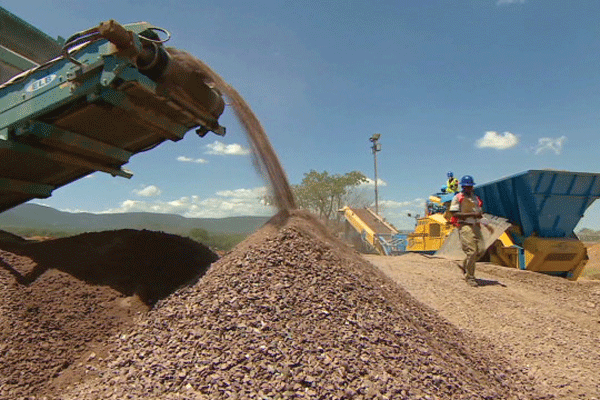Zimbabwe is currently repaying loans with natural resources or guaranteeing payments from natural resource income streams, which harms development by fuelling corruption and unsustainable resource extraction, the Zimbabwe Coalition on Debt and Development (ZIMCODD) has said.
ZIMCODD said this unsustainable resource exploitation causes environmental degradation, pollution, forced displacement of communities, farmer-miner disputes and human-wildlife conflicts. At the same time, mining activities do not provide much development for communities.
“The country’s 2023 debt report shows that Zimbabwe’s debt remains unsustainable as it consumes over 90 percent of the estimated 2023 national output (GDP) and violates the Public Debt Management (PDM) Act, which stipulates a debt-to-GDP threshold of 70 percent,” ZIMCODD said after going through the 2023 Public Debt Report (PDR).
The PDR states Zimbabwe’s total public and publicly guaranteed (PPG) debt increased by 0.6 percent annually to US$17.7 billion at the end of September 2023.
This US$17.7 billion was up from US$17.6 billion at the end of September 2022.
ZIMCODD noted that the government was currently dependent on resource-backed loans due to its high debt levels.
“Due to high indebtedness, Zimbabwe now relies on resource-backed loans, where repayment is made directly in natural resources or a resource-related income stream guarantees repayment,” said the watchdog.
“For instance, the debt report shows that the government, in February 2023, secured a US$400 million loan from Afreximbank for budget support and the financing of trade-related infrastructure. The US$400 million Afreximbank loan is repaid using 35 percent of Zimplats’ export proceeds of platinum.”
ZIMCODD highlighted another case, in 2022, where the Treasury revealed that Zimbabwe borrowed US$200 million from China, a loan secured by 26 million ounces of platinum reserves in Selous.
“These resource-backed loans are dangerous as they exert dire developmental impacts by fuelling corruption and unsustainable resource extraction, leading to environmental degradation, pollution (air and water), forced displacements of communities, farmer-miner conflicts, and human-wildlife conflicts.”
ZIMCODD also noted these mining activities to back up the loans were not bringing tangible development to mining-host communities through corporate social responsibility (CSR), such as maintaining roads and constructing new schools and clinics.
“In addition, the unsustainable extraction of natural resources is an injustice to future generations by depriving them of the value of nature, causing the benefits of nature to humanity to be distributed unequally across time,” ZIMCODD said.
ZIMCODD added as a result of Zimbabwe’s high debt, the government was failing to fully fund social protection programmes.
“The final 2024 budget failed to significantly increase budget votes for social protection programs, given the high prevalence of poverty and inequality in Zimbabwe. Only 4.12 percent of approved budget funds were earmarked for flagship social protection programs like the Basic Education Assistance Module (BEAM), child protection services, and support for older people and persons with disabilities,” said the watchdog.
“With the Treasury’s track record of late disbursements of funds, the value of these funds, which are already inadequate to provide cushion to vulnerable groups, will likely be eroded by inflation.”
Meanwhile, the PDMO said out of the US$17.7 billion debt as of September 2023, 72 percent (US$12.7 billion) was contracted externally, while 28 percent (US$5 billion) was contracted from the domestic market.
The external PPG debt comprises bilateral debt (US$6 billion), multilateral debt (US$3.1 billion), and Reserve Bank of Zimbabwe (RBZ) debt (US$3.6 billion).
In the same vein, the total domestic PPG debt consists of compensation to former farm owners (69.7 percent), government securities (29.2 percent), and arrears to service providers (1.1 percent).

